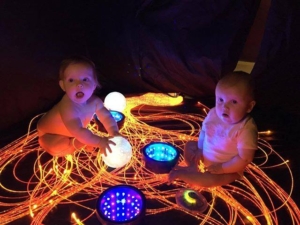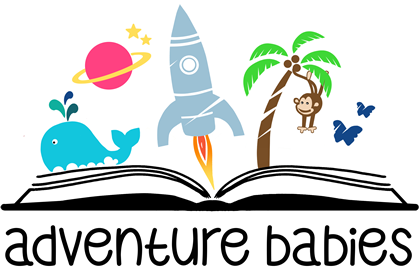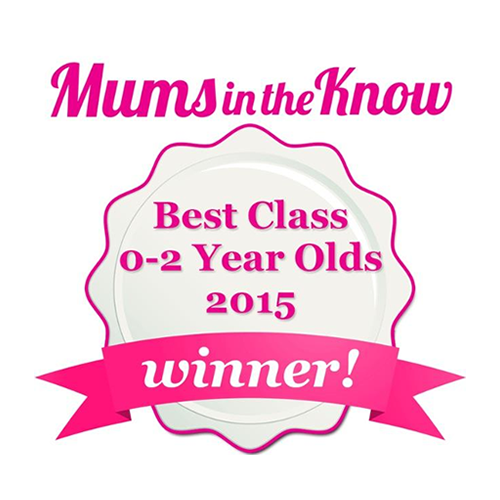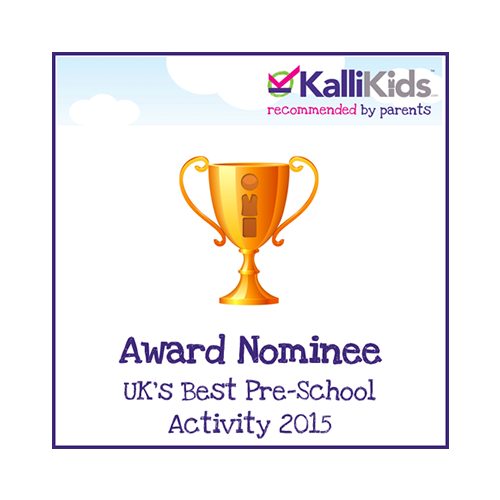Why Do Babies Wake Up at Night and How Can You Help Them Sleep Better? Welcoming a new baby into your life is a joyous and life-changing experience. However, it often comes with the challenge of frequent night wakings. Understanding why babies wake up during the night and learning strategies to help reduce these disruptions […]
Congratulations, new mama! Welcoming a new little one into the world is an incredible journey filled with love, joy, and endless snuggles. But amidst all the nappy changes, feedings, and sleepless nights, it’s easy for new mums to feel isolated and alone during maternity leave. Here are some tips to help you stay connected and beat the loneliness blues during this special time:
1. Join a new mum’s group: One of the best ways to combat isolation during maternity leave is to connect with other new mums who are going through the same experiences as you. Joining a new mum’s group can provide you with a supportive community of fellow mums to share stories, advice, and laughs with.
2. Get out of the house: It’s easy to get stuck in a rut of staying home all day with your little one, but getting out of the house can do wonders for your mental health. Take a walk in the park, visit a local coffee shop, or attend a mum and baby class to break up the monotony of being at home.
3. Schedule regular meetups with friends and family: Don’t be afraid to reach out to friends and family members for some adult interaction. Schedule regular meetups for coffee dates, walks in the park, or even just a chat on the phone to stay connected with your loved ones.
4. Take time for self-care: It’s important to remember that taking care of yourself is just as important as taking care of your little one. Make sure to carve out some time each day for self-care activities that bring you joy and relaxation, whether it’s reading a book, taking a bubble bath, or going for a run.
5. Seek professional help if needed: If you’re feeling overwhelmed, anxious, or depressed during maternity leave, don’t hesitate to seek help from a professional. Talk to your doctor or a therapist about your feelings and get the support you need to navigate this challenging time.
Remember, it’s okay to feel lonely or overwhelmed during maternity leave – it’s a big adjustment, and it’s totally normal to have mixed emotions. Just know that you’re not alone, and there are plenty of resources and support available to help you through this journey. You’re doing an amazing job, mama – keep shining bright!
Baby Development 4-6 Months: Key Milestones and Tips for Mums. Watching your baby grow and develop is one of the most rewarding experiences for any parent. Between 4 to 6 months, your baby will achieve many exciting milestones. Here’s a comprehensive guide to what you can expect and how you can support your baby during […]
Embracing the Superwoman Within: The Physical and Mental Load of Motherhood
Motherhood is a journey like no other. From the moment we bring a new life into the world, we are tasked with an endless list of responsibilities that can feel overwhelming at times. The physical and mental load of motherhood can be exhausting, but it also makes us superwomen in our own right.
The physical demands of motherhood are undeniable. From carrying our children in our wombs for nine months to lifting them up in our arms day in and day out, our bodies undergo incredible transformations to nurture and protect our little ones. The sleepless nights, the constant running around, the never-ending to-do lists – it can all take a toll on our physical well-being.
But it’s not just our bodies that bear the brunt of motherhood. The mental load of constantly thinking about our children’s well-being, their schedules, their needs, and their futures can be just as taxing. We are the ultimate multitaskers, juggling a million things at once and somehow managing to keep it all together.
In the midst of all this, it’s important to remember that it’s okay to ask for help. We may be superwomen, but even superheroes need a break sometimes. Whether it’s asking our partners, friends, or family members for support, reaching out for help is a sign of strength, not weakness. It takes a village to raise a child, and there is no shame in leaning on others when we need it.
So let’s embrace the superwoman within us – the strong, resilient, nurturing mothers who give their all for their children every single day. Let’s celebrate the physical and mental load of motherhood as a testament to our love and dedication. And let’s remember that it’s okay to ask for help when we need it, because even superwomen need a helping hand sometimes.
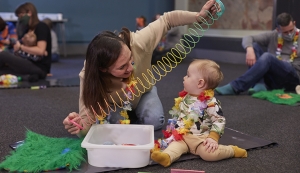
Adventure Babies
Unlocking the Mysteries of Baby Sleep: What Happens to
Your Baby’s Brain During Nap Time
Have you ever wondered what goes on in your baby’s brain while they peacefully nap? As parents, we often focus on the importance of our babies getting enough sleep, but understanding what happens during these crucial nap times can give us deeper insights into their growth and development. Here’s an essential guide to what happens to your baby’s brain during nap time and why it’s so important.
The Magic of Sleep: Brain Development
- Memory Consolidation During nap time, your baby’s brain is hard at work organizing and storing the memories and experiences they gathered while awake. This process, known as memory consolidation, is crucial for learning. Think of it as your baby’s brain filing away new knowledge and experiences into the right folders, making it easier to retrieve and build upon them later.
- Synaptic Pruning Babies are born with more neural connections (synapses) than they will need as they grow. During sleep, the brain undergoes synaptic pruning, where unnecessary connections are trimmed, and important ones are strengthened. This makes the brain more efficient and better prepared for future learning.
- Brain Plasticity The baby’s brain is incredibly plastic, meaning it’s highly adaptable and capable of change. Nap time is when a lot of this plasticity is at play. The brain’s ability to reorganize itself by forming new neural connections is enhanced during sleep, helping babies learn new skills and adapt to their environment.
- Emotional Regulation Naps are not just for physical rest but also for emotional regulation. During sleep, babies process their emotions and experiences, which can help them feel calmer and more balanced when they wake up. This is why a well-rested baby is often happier and more adaptable.
The Phases of Sleep: What Happens When
- REM Sleep (Rapid Eye Movement) During REM sleep, the brain is very active, almost as if the baby is awake. This stage is crucial for cognitive functions such as memory, learning, and problem-solving. Babies spend more time in REM sleep than adults, highlighting its importance in their development.
- Non-REM Sleep This phase is divided into several stages and is critical for physical growth and brain development. During deep sleep (the final stage of non-REM sleep), the body repairs tissues, builds bone and muscle, and strengthens the immune system. For babies, this stage supports overall growth and development.
The Big Picture
Understanding the incredible work your baby’s brain does during nap time underscores the importance of these seemingly simple moments. Naps are not just about resting; they are about growing, learning, and developing in ways that are foundational for your baby’s future.
So next time your little one drifts off to dreamland, remember the amazing processes taking place. Cherish those nap times as a critical component of their growth and development journey.
Happy napping to you and your little one!
Stay in touch with our community of Adventurers
Welcoming a new member into your family is an exhilarating experience, but it also comes with a whole new set of responsibilities—especially when it comes to ensuring the safety of your little explorer. Baby-proofing your home is not only about protecting your precious bundle of joy but also about creating a nurturing environment where they can thrive without unnecessary hazards. In this friendly blog post, we’ll take you through some simple and effective ways to baby-proof your house with love.
1. Start with a Walkthrough:
Before you dive into installing safety gadgets and locks, take a stroll through your home from your baby’s perspective. Get down on their level and identify potential hazards such as sharp corners, electrical outlets, dangling cords, and small objects that could pose choking hazards. This firsthand view will help you prioritize areas that need immediate attention.
2. Cover Those Corners:
Babies are naturally curious creatures, and sharp corners are like magnets to their little heads. Soften the edges of furniture with corner guards or bumpers to prevent bumps and bruises during exploration sessions. Not only will this protect your baby, but it’ll also give you peace of mind knowing they can roam freely without the risk of injury.
3. Lock It Up:
Cabinets and drawers may seem harmless to adults, but to a curious toddler, they’re treasure troves waiting to be explored. Invest in childproof locks and latches to keep curious hands out of harm’s way. Whether it’s the kitchen cabinets filled with pots and pans or the bathroom drawers stocked with toiletries, securing these areas will prevent accidents and keep your little one safe.
4. Cord Control:
Electrical cords and blind cords are potential strangulation hazards for curious babies on the move. Keep cords out of reach or use cord shorteners to prevent them from becoming entangled. For window blinds, consider installing cordless options or using safety devices to keep cords securely out of reach.
5. Gate It Off:
Staircases can be a source of worry for parents, especially when your little one starts to explore their climbing skills. Install safety gates at the top and bottom of stairs to create a barrier and prevent falls. You can also use gates to block off areas of the house that are off-limits or contain potential hazards.
6. Secure Furniture:
Tall and heavy furniture poses a tipping risk, especially as babies start pulling themselves up and attempting to stand. Anchor bookcases, dressers, and other top-heavy furniture to the wall to prevent them from tipping over. It’s a simple yet crucial step in ensuring your baby’s safety as they navigate their surroundings.
7. Stay Vigilant:
No amount of baby-proofing can replace vigilant supervision. Keep a watchful eye on your little one as they explore their environment, and be ready to swoop in at a moment’s notice. Even with all the safety measures in place, accidents can still happen, so it’s essential to stay present and engaged.
In conclusion, baby-proofing your home is a labor of love aimed at creating a safe and nurturing environment for your little one to grow and thrive. By taking proactive steps to identify and address potential hazards, you’ll not only protect your baby but also enjoy greater peace of mind as you embark on this exciting journey of parenthood. So, roll up your sleeves, gather your safety supplies, and let’s baby-proof your home with love!
Embracing Spring: Our Guide for New Parents
As the vibrant colors of spring blossom and the sweet scent of flowers fills the air, it’s the perfect time for new parents to embrace the beauty of the season and all the joys it brings. From outdoor adventures to seasonal safety tips, here’s a comprehensive guide to help new parents navigate this exciting time with confidence and joy.
Outdoor Adventures with Your Little Adventurer
Spring offers an array of outdoor activities perfect for bonding with your newborn. Whether it’s a leisurely stroll in the park, a picnic under the blooming cherry blossoms, or simply lounging in the backgarden, spending time outdoors can be refreshing for both parent and child. Remember to dress your baby appropriately for the weather, with layers to accommodate unpredictable spring temperatures, and always ensure they’re protected from the sun with hats and sunscreen.
Spring Cleaning and Safety
As you freshen up your home for the new season, it’s essential to keep safety in mind, especially with a curious little one around. Take the opportunity to childproof your living space, securing cabinets, outlets, and furniture to prevent accidents. Be mindful of potential hazards in your garden as well, such as poisonous plants or sharp garden tools. With a few simple precautions, you can create a safe and welcoming environment for your growing family.
Celebrating Milestones and Firsts
Spring is a season of new beginnings, making it the perfect time to celebrate your baby’s milestones and first experiences. Whether it’s their first smile, their first taste of fresh strawberries, or their first time feeling grass beneath their feet, cherish these precious moments and create lasting memories with your little one. Consider starting a springtime tradition that you can continue to enjoy together as they grow.
Nurturing Your Well-being New Parents
Amidst the joys of parenthood, it’s important for new parents to prioritise self-care and nurture their own well-being. Take advantage of the longer days and milder weather to carve out moments of relaxation and rejuvenation for yourself. Whether it’s a quiet cup of tea on the porch, a yoga session in the sunshine, or a leisurely walk in nature, find what brings you joy and make time for it regularly. Remember, taking care of yourself enables you to be the best parent you can be for your child.
As you embark on this journey of parenthood amidst the beauty of spring, may you savor each moment and embrace the wonder of new beginnings. From outdoor adventures to precious milestones, may this season be filled with love, joy, and cherished memories for you and your little one.
Happy spring!
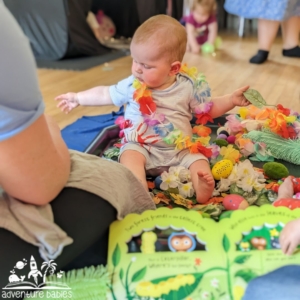
Every moment of parenthood is a precious opportunity for bonding and growth. One timeless ritual that encapsulates both is the act of reading to your baby. Beyond the cuddles and giggles, there’s a profound impact on their development that transcends the words on the page. We’ll delve into the benefits that reading brings to your baby’s cognitive, emotional, and linguistic development.
- Cognitive Marvels: Engaging in storytime stimulates your baby’s developing brain. The colourful illustrations, varying textures of the books, and the melodic cadence of your voice create a multi-sensory experience, laying the groundwork for cognitive growth.
- Language Skills Blossom: Reading introduces your baby to the rhythm of language, helping them absorb vocabulary and understand the basics of communication. This early exposure serves as a cornerstone for future language skills and literacy.
- Emotional Intelligence Unleashed: Stories are not just narratives; they’re emotional journeys. As your baby listens to tales of triumph and challenges, they begin to understand emotions, fostering the development of empathy and emotional intelligence.
- Establishing Healthy Routines: The predictability of a reading routine provides a sense of security for your baby. Establishing this habit not only contributes to a consistent daily schedule but also aids in creating a safe and comfortable environment.
- Building Curiosity and Lifelong Learning: The diverse worlds explored in storybooks fuel your baby’s innate curiosity. Every page turned is a small adventure, encouraging a love for learning that will stay with them as they grow.
In the symphony of your baby’s development, the simple act of reading becomes a powerful conductor, weaving together cognitive, emotional, and linguistic notes. Embrace the magic of storytime, for in those shared moments, you’re not just reading a book; you’re fostering a future of endless possibilities for your little one.
Join us at your local Adventure Babies class.
Check out the best books for babies…
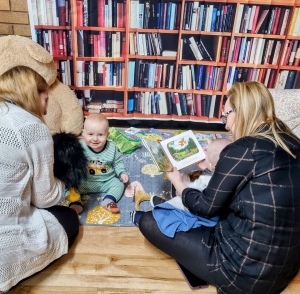
Socialisation is crucial for babies as it plays a significant role in their overall development. Find out why we think that socialisation is so important for your baby?
- Emotional Development: Interacting with others helps babies develop emotional intelligence. They learn to recognise and respond to facial expressions, gestures, and tones of voice. Positive social experiences contribute to the development of a secure attachment to caregivers, promoting emotional well-being.
- Language Development: Socialisation exposes babies to language, allowing them to learn and mimic sounds, words, and eventually, language structure. Conversations and interactions with caregivers and peers stimulate language development and communication skills.
- Cognitive Development: Social experiences provide opportunities for cognitive stimulation. Babies learn through observation and imitation, and socialisation exposes them to new ideas, activities, and problem-solving situations.
- Motor Skills: Social interactions often involve physical activities such as reaching for objects, crawling, or walking. These movements contribute to the development of fine and gross motor skills in babies.
- Understanding Social Cues: Through socialisation, babies begin to understand social cues and norms. They learn about turn-taking, sharing, and cooperation, which are essential skills for building positive relationships.
- Building Relationships: Socialisation helps babies form attachments with caregivers and establish relationships with peers. Positive social experiences in the early years set the foundation for healthy social relationships later in life.
- Self-Regulation: Interactions with others provide opportunities for babies to learn self-regulation. They begin to understand the concept of waiting, taking turns, and managing their emotions in response to different social situations.
- Cultural Learning: Socialisation exposes babies to the cultural norms, values, and behaviours of their community. This early exposure helps shape their understanding of the world around them.
- Brain Development: Social interactions stimulate brain development by creating neural connections. Babies’ brains are highly adaptable, and positive social experiences contribute to the formation of essential neural pathways.
- Confidence and Security: Positive social interactions with caregivers and peers contribute to the development of a secure sense of self and confidence. Feeling loved, understood, and supported in social interactions helps build a foundation for emotional well-being.
In summary, socialisation is a vital aspect of a baby’s development, influencing their emotional, cognitive, language, and social skills. Early positive social experiences lay the groundwork for a child’s overall well-being and future social interactions. There is no bigger reason to come and join us at your nearest Adventure Babies class!
